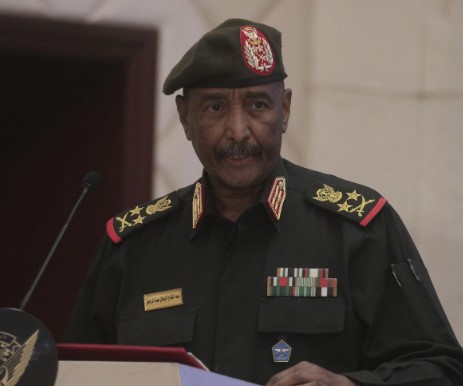In recent developments, Sudan’s military government has rejected serious allegations made by the United Arab Emirates (UAE). The UAE accused Sudan’s military forces of bombing its ambassador’s residence located in Khartoum, the capital of Sudan. Instead of accepting blame, Sudan’s military has pointed fingers at the rival paramilitary group known as the Rapid Support Forces (RSF). This ongoing conflict between the military and the RSF has been ongoing for over a year and has resulted in significant violence and suffering in the region.
The UAE’s statement came on a Monday when it condemned the alleged attack as a “heinous act.” The UAE’s Ministry of Foreign Affairs expressed outrage, stating that the bombing was a “flagrant violation of the fundamental principle of the inviolability of diplomatic premises.” This principle is crucial in international relations, ensuring that embassies and diplomatic residences are protected from attacks. According to the UAE, the bombing resulted in substantial damage to its ambassador’s residence, raising concerns about the safety and security of diplomatic missions in Sudan.
Accusations Fly Amid Ongoing Conflict
The tensions between Sudan’s military and the RSF have led to accusations on both sides. The military government in Sudan has previously accused the UAE of providing support to the RSF. The military claims that the UAE has supplied weapons and other forms of assistance to the RSF, enabling them to continue their fighting. This claim has contributed to a growing rift between Sudan and the UAE, especially as the war has led to a dire humanitarian crisis in Sudan.
In response to the UAE’s accusations, the Sudanese military released a statement that blamed the RSF for the bombing incident. The military described the actions of the RSF as “shameful and cowardly.” The statement emphasized that the military does not target diplomatic missions, United Nations agencies, or organizations that provide aid. The military has positioned itself as a defender of these institutions, claiming that the RSF has turned such places into military bases, which is unacceptable behavior.
The Sudanese military’s statement further labeled the RSF as a “terrorist, rebel militia” and accused it of committing acts that violate the rights of civilians. The military also claimed that the RSF was being supported by certain countries, implying that the UAE’s assistance to the RSF was part of a broader pattern of international involvement in the conflict.
The Humanitarian Crisis Deepens
The conflict in Sudan has resulted in devastating consequences for the civilian population. With the fighting continuing in various parts of Khartoum, nearly half of Sudan’s population—around 25 million people—are in dire need of humanitarian aid. The ongoing violence has led to widespread displacement, with about 8 million people fleeing their homes to escape the conflict.
The situation has worsened as heavy clashes erupted in several areas of Khartoum. The government forces have been launching assaults to regain control of the city, where the RSF has been dominant since the conflict began. The RSF has been accused of committing numerous abuses against civilians, raising serious concerns about human rights violations amid the fighting.
International organizations, including the United Nations, have expressed alarm over the escalating violence and the humanitarian situation in Sudan. Despite the UAE’s claims of focusing on de-escalation and humanitarian efforts, the accusations made by Sudan’s military have cast a shadow over the Gulf state’s role in the conflict. The Sudanese ambassador to the United Nations has previously accused the UAE of playing a crucial role in prolonging the war by providing financial and military support to the RSF.
Ongoing Humanitarian Crisis Amidst Escalating Conflict
While the UAE has dismissed these allegations as “disinformation,” the ongoing war has led to immense suffering for the Sudanese people. With the military government accusing the RSF of exploiting the situation and international tensions escalating, the humanitarian crisis in Sudan shows no signs of improvement.
As the conflict continues to unfold, the impacts on civilians remain severe, with food shortages and the threat of famine looming large. The international community is closely monitoring the situation, but for now, the people of Sudan continue to bear the brunt of the ongoing violence and instability in their country.





